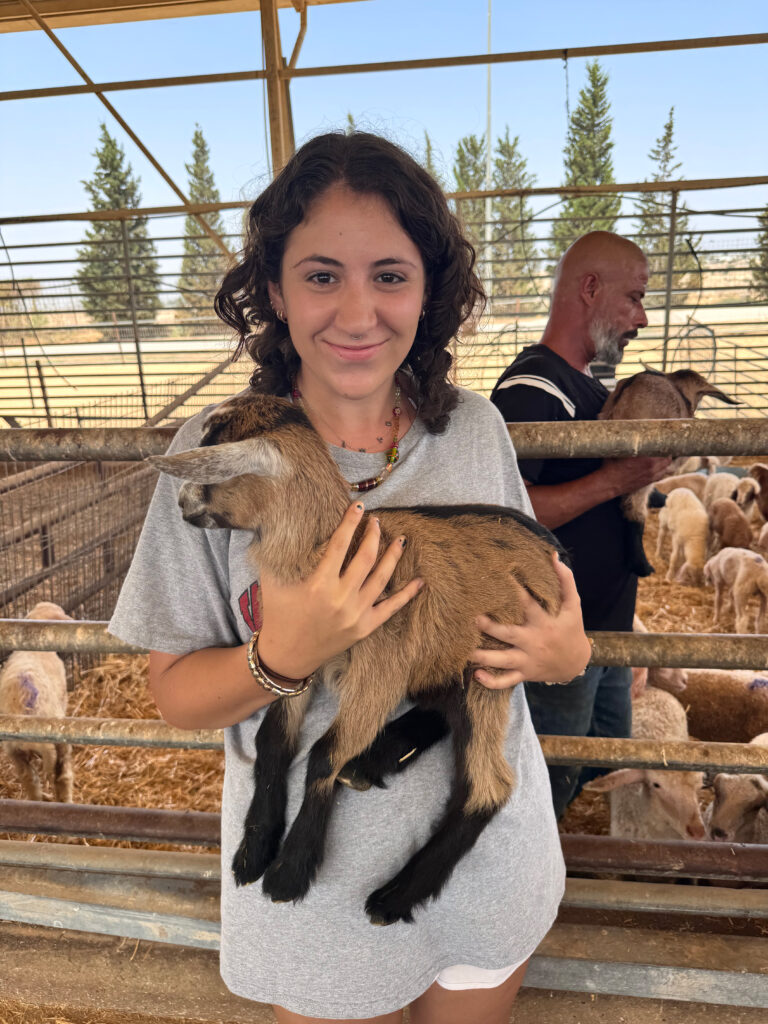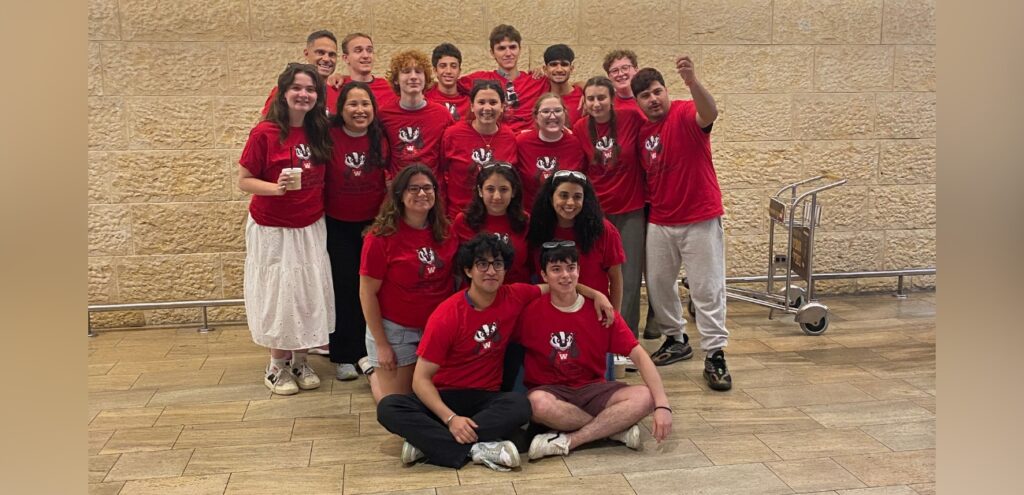I thought I was going to Israel to learn about politics. What I found instead was the stories of people and their fears, hopes, and resilience.
I’m Liz Geier, a student at the University of Wisconsin-Madison, a political science and journalism major, and a leader at Madison Hillel. This August, I traveled with 16 other University of Wisconsin-Madison students to Israel on a 10-day student leadership delegation, partnered with Hillel and Shorashim, the nonprofit that works to connect Israel with North America. Out of the 17 students on this trip, only five were Jewish, which meant that our conversations weren’t just about sharing facts, but rather grappling with different worldviews and identities. This was a trip designed to understand the geopolitical climate of Israel better, but more than that, to hear the stories of everyday people: Jews, Arabs, Muslims, Bedouins, Druze, and more who have lived through the war that began on Oct. 7.
During our trip, we encountered a wide range of perspectives on the conflict. We listened to Hassan Haj, a Palestinian educator, who facilitates discussions between Arabs and Jews working towards peace, sharing the stories of people often overlooked in the headlines. At the Nova Festival grounds, we heard the story of Niv Reuveni, who survived the Oct. 7 attacks and was saved by a Bedouin man, reminding us of compassion amid violence. These narratives reminded me that the people on the ground, and no matter their nationality or religion, are first human.
I came to Israel ready to engage in policy discussions, but I quickly realized that wasn’t the kind of conversation I needed to understand this conflict better. It wasn’t the things I needed to talk about; it was the people I needed to talk to, the millions of people who are ready to build a better future and are tired of going to sleep in fear.
I realized these labels that we tightly cling to, like Zionist, pro-Israel, and pro-Palestine, aren’t helping my goal for a college campus that welcomes conversation and doesn’t hide from difficult discussions. They simplify our beliefs into categories, often at the expense of dialogue. Do these labels help us identify ourselves, or do they keep us locked in a cage, unable to move forward? I feel that once we identify with one, we lose room to grieve for all victims, and to engage in conversation to respond rather than hearing an opposing view. I learned that we should be centering our advocacy around peace and prosperity, rather than soundbites. We often get lost in the shouting matches that dominate campus debates, forgetting the everyday people who are truly affected by this war.
The last lesson I learned from this trip didn’t take place in Israel; instead, it happened during a 12-hour layover in Frankfurt, Germany, when I was walking the streets with a Jewish friend wearing a kippah, and a woman stopped us. “Just take care with the kippah,” she warned. “Times are hard right now,” she said as she held her yellow ribbon pinned to her shirt, symbolizing the call to release the hostages held in Gaza. I asked my friend if she had specifically said it would be dangerous for his safety, would he have taken it off? He said no.
This moment stuck with me. It reinforced everything I had learned on the trip. Identity markers invite assumption and judgment, which can oversimplify our beliefs. Whether in Israel, Frankfurt, or on our college campuses, the challenge remains the same: Look past the labels; look past your presumptions.Truly listen to people, and carry their stories forward with care and empathy.
* * *




